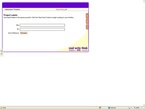1. Who was Abraham Lincoln and where was he from?
- a. What experiences prior to the Civil War formed his character?
- b. What role did he play in the Civil War?
- c. How did the election of 1860 lead to secession?
- d. What was the impact of the Emancipation Proclamation on the United States and the Confederacy?
- e. What was his fate?
- f. How did his own views on Slavery and Emancipation evolve?
The War through Lincoln's Eyes
Created by: Kerry Gallagher for the Teaching American History Grant

President Abraham Lincoln is best remembered as "The Great Emancipator" and his signing of the Emancipation Proclamation is boldly memorialized with this statue in Philadelphia. While it is true that Lincoln hated slavery as an institution, he recognized that it was protected by Constitutional property rights. Lincoln was not an abolitionist. Although today we consider their perspective the most morally sound, abolitionists were considered extreme during the years leading up to and during the Civil War. Lincoln was moderate, which is why it is important for us to study and understand his journey to freeing the slaves through his own words.
Part 1: Small Group Document Analysis: Instructions
|
Documents
| ||||||||||||||||||||||||||||||||||||||||||||||||
Use the document link below to analyze the documents, following the instructions above.
Use the document link below, and follow the instructions above to take notes on the information shared by other groups.
Your browser does not support viewing this document. Click here to download the document.
Part II: Follow up and Timeline
|
Instructions
Using the free timeline creator, make a timeline that includes the following for each document:
You MUST print your final timeline and bring it into class tomorrow to be checked as homework. Hint: The timeline creator only works properly if you enter the documents in chronological order. |

Link to Timeline Creator
Interactive Timeline by ReadWriteThink When you get to this screen, give your timeline a title and enter your name. Then click 'Next Entry' at the top of the screen to start creating your timeline. |
Part III: Class Discussion and Questions to Think about
We will use the following questions to guide a class discussion after you have completed and turned in your timeline.
- Was there a difference in Lincoln's public and private opinions of slavery? What words did he use in private letters that he didn't use in public documents to describe his feelings or opinions of slavery?
- Was there a difference in Lincoln's opinion of slavery between the early public documents and the later public documents? Did he seem to be more or less willing to publicly declare his true feelings? Which documents helped you come to this conclusion?
Part IV: Additional Information and Background
The Civil War, by Ken Burns | Universe of Battle, 1863 | Part 5
The turning point of the war is reached at the legendary Battle of Gettysburg, one of the most awesome battles ever waged. While 150,000 men face death in Pennsylvania's fileds, the war spreads westward to Chattanooga and Chickamauga. As the Union drats more soldiers, riots rage in New York, and African American troops join the fight. At Gettysburg's cemetery, President Lincoln articulates the poignant hope "that government of the people, by the people, and for the people shall not perish from the earth.
The Civil War, by Ken Burns | The Better Angels of Our Nature, 1865 | Part 9
In the bittersweet days after the war's end, the Union's triumphs quickly turns to sorrow. Just five days after victory, President Lincoln dies by the hand of John Wilkes Booth, and the nation's story is again changed forever. This final episode surveys the fates of the people who left their indelible marks on this remarkable era. And it leaves us with insights into the meaning of a conflict that helped make us the nation we are today.

